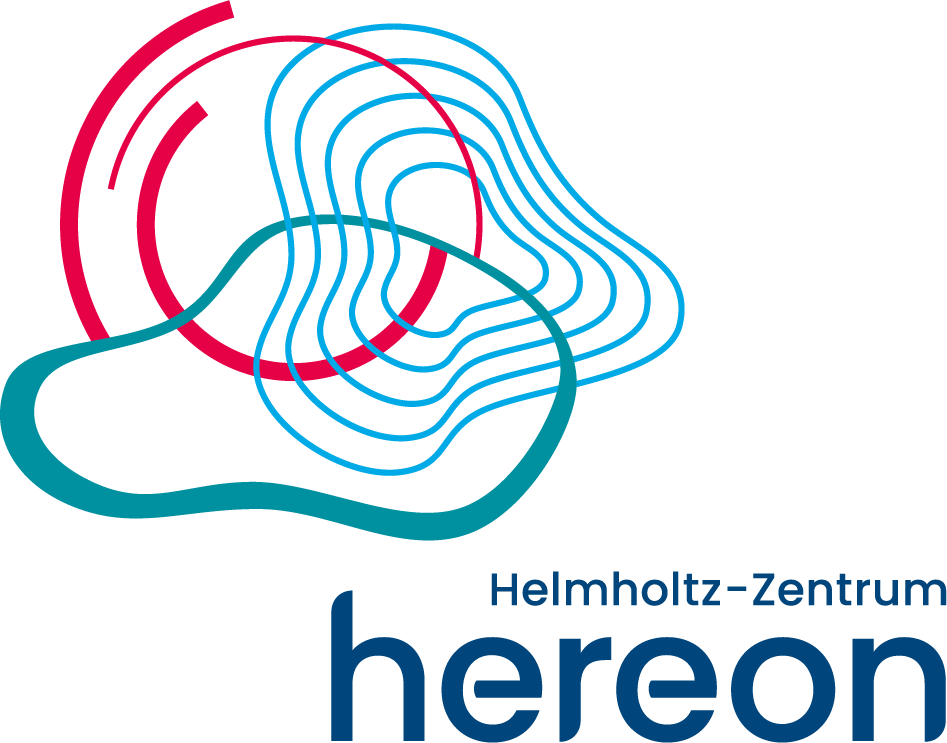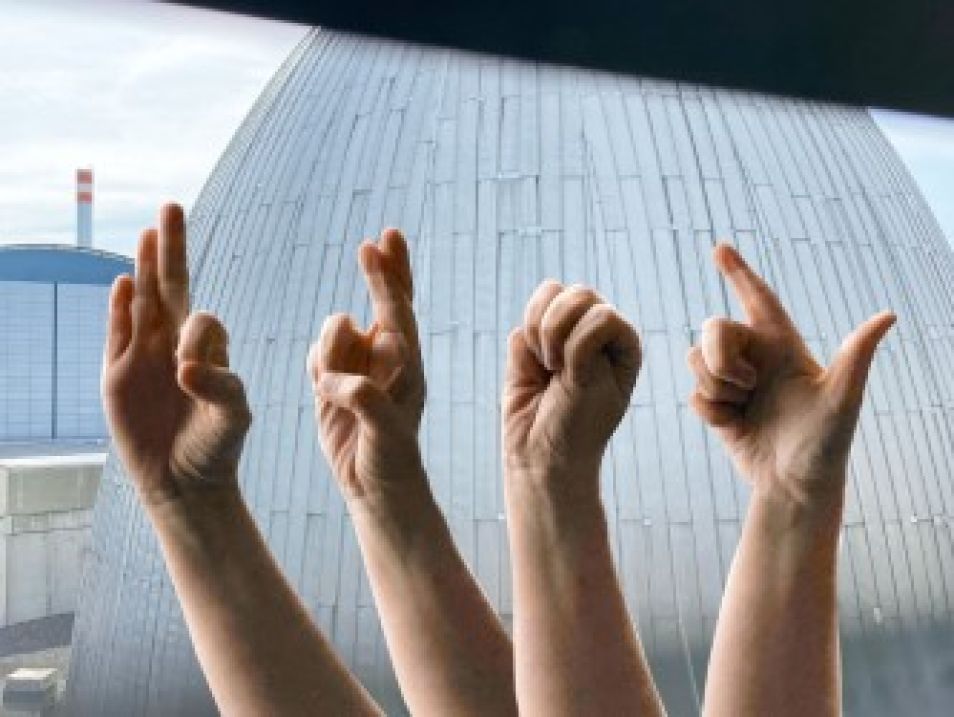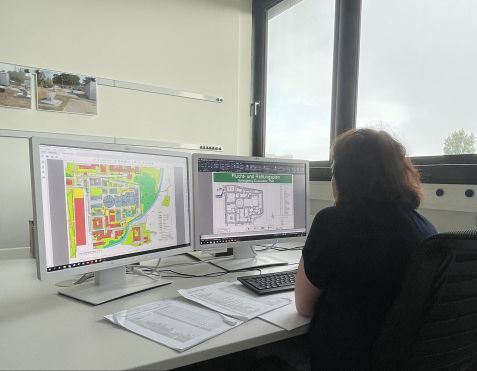MLZ is a cooperation between:
 > Technische Universität München
> Technische Universität München > Helmholtz-Zentrum Hereon
> Helmholtz-Zentrum Hereon
 > Forschungszentrum Jülich
> Forschungszentrum Jülich
MLZ is a member of:
 > LENS
> LENS > ERF-AISBL
> ERF-AISBL
MLZ on social media:

MLZ (eng)
Lichtenbergstr.1
85748 Garching
10.04.2024
A deaf colleague at the FRM II
If you want to go to Yella Wähner’s office, you simply open the door. Knocking would be pointless, because the technical draftswoman would not answer. Not because she is so engrossed in her plans: Yella Wähner cannot hear anything. She is deaf. She has been working at the Forschungs-Neutronenquelle Heinz-Maier Leibnitz (FRM II) for four years.
What the technical draftswoman, who specializes in machine and systems engineering, likes most about her job is the variety. Among other things, Yella Wähner is responsible for creating escape and rescue plans, fire department deployment plans and fire department route maps. She has already produced hundreds of plans during her time at FRM II. “The work I do is so varied that it never gets boring. I’m currently designing new room plans for offices, but also for the reactor,” verbalizes Yella Wähner’s sign language interpreter.
How does a deaf person find out about an escape or fire alarm?
Yella Wähner cannot hear the loud sounds of an escape or fire alarm. She therefore has a technical aid at work that would signal the alarm by flashing. As this is sometimes overwhelmed by the many different sounds, false alarms occasionally occur. “I also have technical aids at home, such as for the alarm clock, the doorbell and the smoke detector. They convert everything perfectly into visual signals,” she explains.
Tips for hearing people
Some deaf people can read lips. However, this is very tiring as only around 30 percent of the words can be read. For example, the mouth picture of the words “speed” and “speak” looks exactly the same. The rest is a combination of the context of what is said. There is no question that many misunderstandings can arise here and is also the reason why Yella Wähner prefers to communicate via email or sign language interpreters.
Is sign language international?
“I am often asked whether sign language is international. In fact, sign languages are different internationally and there are even dialects within Germany,” clarifies Yella Wähner. Sign languages are fully-fledged languages in their own right and it takes just as long to learn them as it does to learn a spoken language. There are over 100 different ones worldwide. For example, German and French sign languages have different signs for the words apple and water.
When you leave Yella Wähner’s office, it’s best to wave and gently close the door.

Meike Jahn
Press and public relations
FRM II
MLZ is a cooperation between:
 > Technische Universität München
> Technische Universität München > Helmholtz-Zentrum Hereon
> Helmholtz-Zentrum Hereon
 > Forschungszentrum Jülich
> Forschungszentrum Jülich
MLZ is a member of:
 > LENS
> LENS > ERF-AISBL
> ERF-AISBL
MLZ on social media:




